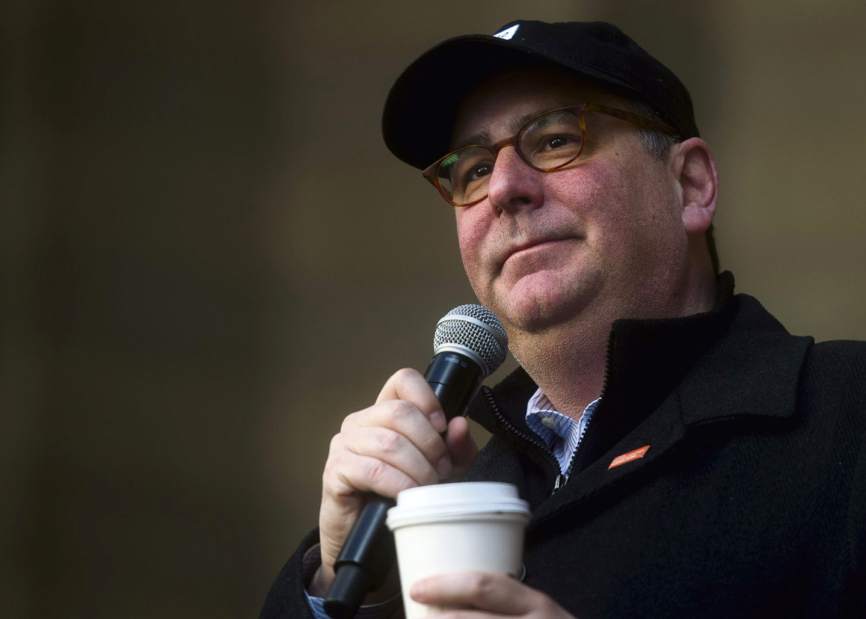Peduto asks nonprofits, corporations to help with $3 billion in 'OnePGH' improvements
Pittsburgh Mayor Bill Peduto on Friday announced plans for a $3 billion investment over 12 years in city social programs and infrastructure, and he's seeking nearly half of that in contributions from corporations and nonprofits.
Peduto, addressing about 125 corporate and nonprofit officials at the Energy Innovation Center in the Hill District, said the city has been planning a “unified fund” dubbed OnePGH to pay for such priorities as universal preschool, affordable housing and lead-free water pipes. He proposed spending $3 billion over the next 12 years with $1.4 billion coming from government sources and $1.6 billion from the corporate and nonprofit community.
“We know that there will be $1.4 billion over the next 12 years going into these priorities,” Peduto said. “What we're missing is $1.6 billion in order to actually see the priorities through to success over 12 years. The $1.6 (billion) will not be made up solely from those other entities. It will be a combination of additional government funds... and also then public-private partnerships in order to be able to make it a reality.”
The city has yet to receive financial commitments, but Pittsburgh's private sector is listening, the mayor said. He said he has met with corporate, foundation and nonprofit leaders and they have expressed interest in contributing.
“Once we have a final report ... that's when the formal ask on specific dollar amounts would happen,” he said.
Peduto said he expects the report, which will be publicly available, to be finished in about two months.
City staff and corporate and nonprofit representatives since January have mapped out funding priorities.
They include expanding preschool to accommodate 1,500 additional students, doubling the city's affordable housing trust fund to $20 million annually, replacing all lead water pipes in the city, creating new public art, adding parks and playgrounds so all residents are within a five-minute walk of quality green space, building 27 green infrastructure projects capable of diverting two billion gallons of rainwater per year from sanitary sewers and cutting city waste, energy and greenhouse gas emissions by 50 percent and powering city government exclusively through renewable energy sources.
Plans also call for new workforce development programs, including 360 apprenticeships, five business district managers and increasing a micro loan program for startup businesses.
“We already fund a lot of the work that's being described here with current grant making,” said Andrew McElwaine, vice president of sustainability for The Heinz Endowments, noting that the foundation has funded green infrastructure projects among others. “I'm sure that partnership will continue.”
Paul A. Supowitz, vice chancellor for community and government relations at the University of Pittsburgh, said Pitt has been a participant in discussing OnePGH.
“We want to be a partner with the city, but what form that takes we have to see,” he said.
Bob Bauder is a Tribune-Review staff writer. Reach him at 412-765-2312, bbauder@tribweb.com or via Twitter @bobbauder.

